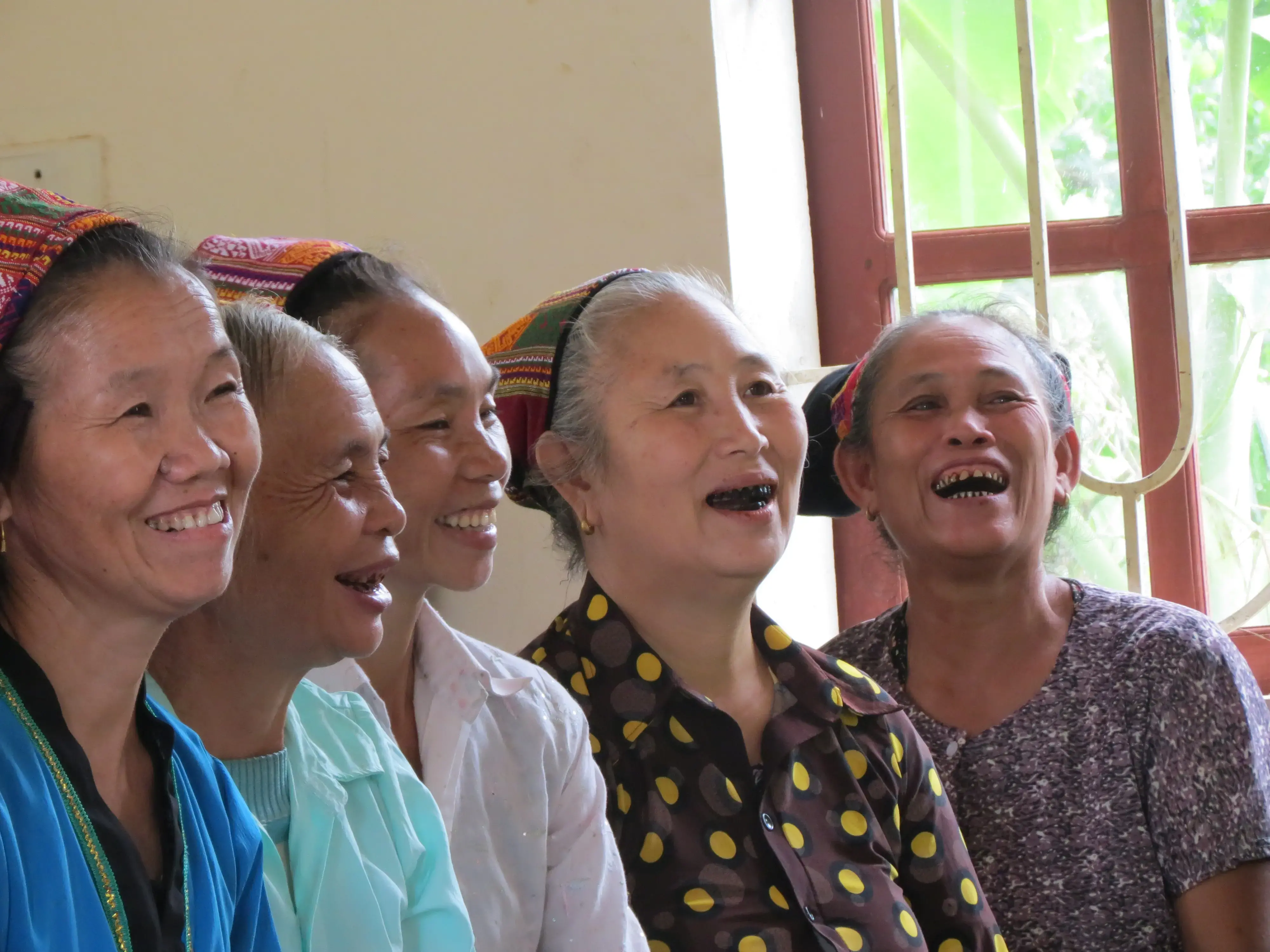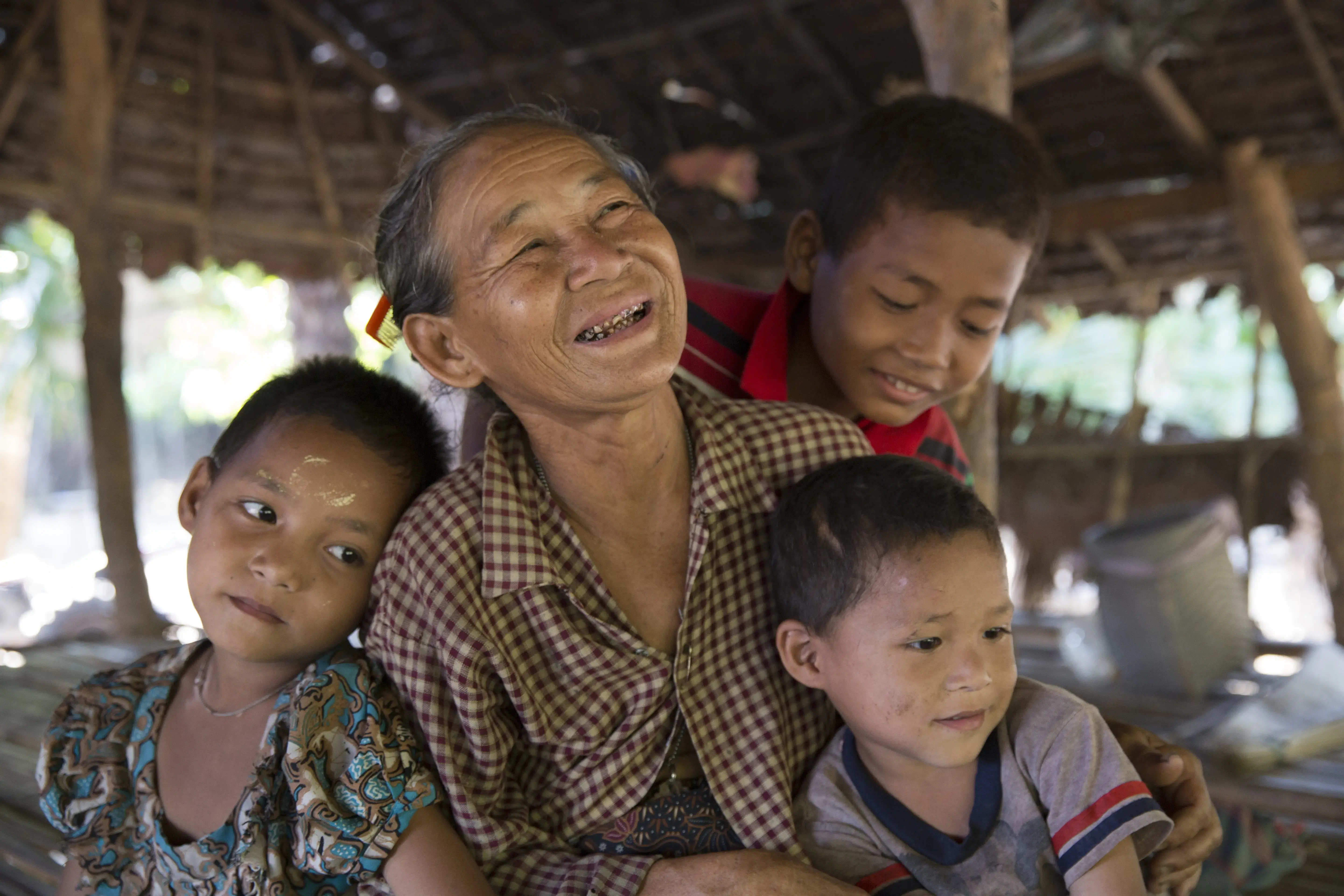Demographic change and development is fueling more diverse family units, including three generation homes, single parent families and same sex couples. New policies are required to meet their needs.
Bangkok, 18 May 2016 – Thailand’s families are increasingly diverse, and the 6.5 million extended families, where three generations live together, now constitute the largest group of the country’s 19.5 million families.
A new report ‘The State of Thailand’s Population Report 2015: Features of Thai Families in the Era of Low Fertility and Longevity,’ launched by the Office of the National Economic and Social Development Board (NESDB) and the United Nations Population Fund (UNFPA) today, finds that the increasingly varied structure of Thai family units are being fueled by rapid economic development and demographic change.
Covering the period between 1987 and 2013, the report states that the number of families with a traditional set up of a mother, father and children all living together now numbers just 26 per cent of the total. In 1987, they made up more than half.
Single parent families number 1.3 million, or 7 per cent, and couples without children have increased three-fold to 16 per cent over 25 years. ‘Skipped generation’ families, where children live with their grandparents, and people living alone, have doubled over the period.
“Thailand is facing a drastic demographic shift. We are transitioning into an ageing society, with a steady decline in the number of children and the working-age population, and an increase in the number of elderly people. This will contribute to a decrease in the national growth potential.” Said Dr. Porametee Vimolsiri, Secretary General of the National Economic and Social Development Board.
“However, the fact that society is ageing can also provide a good opportunity. The challenges of our ageing society have determined that we must focus on maximizing the development of human capital. Families are the most important institution where a person develops, so new policies must take into account these different contexts and the diversity of these challenges.”
The report calls for the development of new policies and actions to support diverse families, including the expansion and development of maternal and reproductive healthcare, boosting access to quality education, improving working conditions for women, greater efforts to support gender equality within families and more flexible working conditions.
“It is a challenge for the state to formulate and apply public policies that can support all of these different types of families. And if we are to take the principle of ‘leaving no one behind’ seriously, policies need to give greater priority to the most vulnerable family members,” said Yoriko Yasukawa, UNFPA’s Director for Asia and the Pacific.
Referring to the Global Goals for Sustainable Development - the 17 worldwide targets to end poverty, fight inequality and injustice and tackle climate change by 2030 that were agreed by world leaders in September 2015 - UNFPA’s Yasukawa called for a special focus on single parent families, same sex couples and other vulnerable families.
“The family is central to the mission of the United Nations - which is to support the kind of development that guarantees the right to a life of dignity for everyone. And on that foundation, to build a lasting peace. It’s crucial that families, with state support, can expand the circle of caring and solidarity to build peaceful and inclusive societies – societies that continually strive to ensure a life of dignity for all people, regardless of any differences,” she said.
For further information, please contact Kullwadee Sumalnop, UNFPA Thailand Communications Specialist: sumalnop@unfpa.org, Cell: 08.1917.5602.




